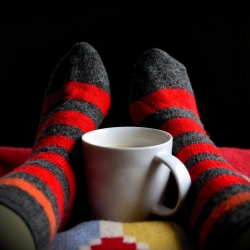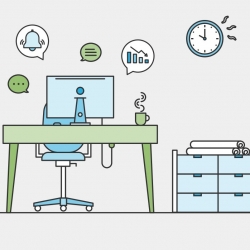To provide the best experiences, we use technologies like cookies to store and/or access device information. Consenting to these technologies will allow us to process data such as browsing behaviour or unique IDs on this site. Not consenting or withdrawing consent, may adversely affect certain features and functions.
The technical storage or access is strictly necessary for the legitimate purpose of enabling the use of a specific service explicitly requested by the subscriber or user, or for the sole purpose of carrying out the transmission of a communication over an electronic communications network.
The technical storage or access is necessary for the legitimate purpose of storing preferences that are not requested by the subscriber or user.
The technical storage or access that is used exclusively for statistical purposes.
The technical storage or access that is used exclusively for anonymous statistical purposes. Without a subpoena, voluntary compliance on the part of your Internet Service Provider, or additional records from a third party, information stored or retrieved for this purpose alone cannot usually be used to identify you.
The technical storage or access is required to create user profiles to send advertising, or to track the user on a website or across several websites for similar marketing purposes.
 According to new data from people success platform Glint, employee burnout is reaching new highs — with no signs of abating. People worldwide have been coping with a range of hardships this year, including a pandemic, social isolation, enforced working from home, school disruptions and major layoffs. (more…)
According to new data from people success platform Glint, employee burnout is reaching new highs — with no signs of abating. People worldwide have been coping with a range of hardships this year, including a pandemic, social isolation, enforced working from home, school disruptions and major layoffs. (more…)







 A new study by skincare brand
A new study by skincare brand 




 With the British workforce being asked to return to working from home amid fears of a second spike in COVID-19 cases, new research from employee experience professionals
With the British workforce being asked to return to working from home amid fears of a second spike in COVID-19 cases, new research from employee experience professionals 
 New research by management consultancy
New research by management consultancy 
 The amount of change that the average employee can absorb without suffering fatigue in 2020 has been cut in half compared to 2019, according to
The amount of change that the average employee can absorb without suffering fatigue in 2020 has been cut in half compared to 2019, according to 
 A new study looking at skills in online chess tournaments from
A new study looking at skills in online chess tournaments from 
 New research by
New research by 
 Envoy has released results from its
Envoy has released results from its 










October 15, 2020
The wellbeing needs of men and women can be very different
by Alaana Woods • Comment, Flexible working, Wellbeing